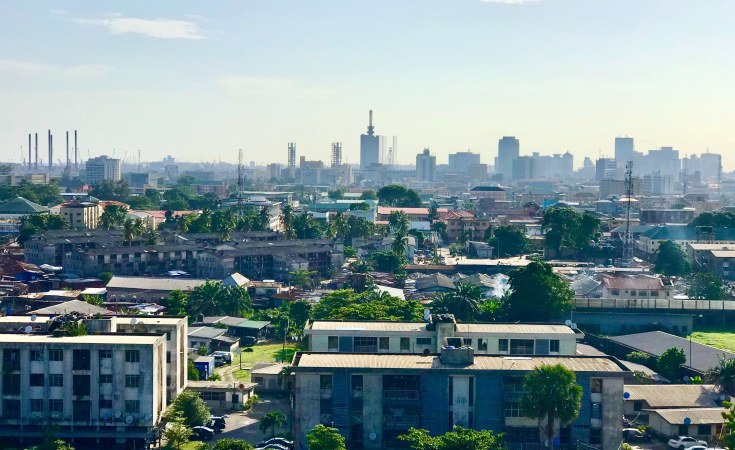Constant Cap, Rebecca Enobong Roberts and Taibat Lawanson examine the gaps in planning and policy around urban migration.
Curated Conversations · Season 1, Episode 4: Migration and Displacement in African CitiesWhere does migration policy happen? Who devises and implements it?
Researchers and policymakers are increasingly aware of the fact that, beyond interior ministries, borders and refugee camps, the stakeholders of migration governance encompass city-level decision-makers and municipal authorities. Most migrants do not cross international borders. They include the many millions of rural dwellers moving to cities for opportunities, or because they have been displaced by environmental factors.
What are the implications of this realisation? Researchers Rebecca Enobong Roberts, Taibat Lawanson, and Constant Cap draw attention to gaps in knowledge, policy and planning when it comes to migrants and internally displaced persons in African cities. Comparing and contrasting the challenges faced by migrants in East and West African contexts, they map pathways toward more effective urban migration governance that draw on the often informal strategies and preferences of urban dwellers themselves.
Speaker Bios
Constant Cap is an urban planner and researcher based in Nairobi, Kenya. He has been involved in research, advocacy and practice in the areas of urban mobility, urban displacement, placemaking and environmental monitoring. He regularly comments on urban planning issues at africancityplanner.com.
Rebecca Enobong Roberts is a PhD candidate at the Technische Universität Berlin's Habitat Unit. Her dissertation examines the intersectionality between internal displacement and forced migration in the context of sustainable and inclusive urbanisation through a placemaking case study of IDP migrants from the North-East region of Nigeria to the metropolis of Lagos.
Taibat Lawanson is a Professor of Urban Management and Governance at the University of Lagos, Nigeria. Her work focuses on the interface of social complexities, urban realities and the pursuit of spatial justice in Africa. She is well known for her transdisciplinary approach which engages students, policy makers, civil society and local communities.
Further Reading
RE Roberts, O Okanya (2022) "Measuring the socio-economic impact of forced evictions and illegal demolition; A comparative study between displaced and existing informal settlements" in The Social Science Journal.
About Curated Conversations
The Curated Conversations: Exploring the Politics of Migration through Ideas (Season I) podcast series examines the past, present, and possible futures of migration within and from the African continent. It approaches migration with a critical and philosophical lens, drawing on the expertise of leading experts, thinkers, and practitioners in a series of in-depth interviews and discussions about migration histories and policy regimes. The geographical scope of the series is broad, with coverage spanning the length and breath of the continent in all its global connections. Experts from across Africa and its Euro-American diaspora are invited to share their knowledge, lived experience, and diverse perspectives on the interplay between borders and social phenomena.
Curated Conversations seeks to forge a new discussion around African migration in Europe and the West, but also within Africa itself: one that foregrounds African knowledge, lived experience, and political thought towards a humane and socially just order of mobility. The questions it asks include: What kind of ideas inform current migration policies in Africa? Where do they fall short, and what kinds of alternatives can we imagine?
Curated by Ali Nobil Ahmad and Linah Kinya, African Migration Hub, Heinrich Böll Foundation. Co-published by African Arguments and the Heinrich Boll Foundation, Horn of Africa Office. Produced in Nairobi by Amp Studios Africa
Curated Conversations is a podcast series that seeks to forge a new discussion around African migration in Europe and the West, but also within Africa itself: one that foregrounds African knowledge, lived experience, and political thought towards a humane and socially just order of mobility.


